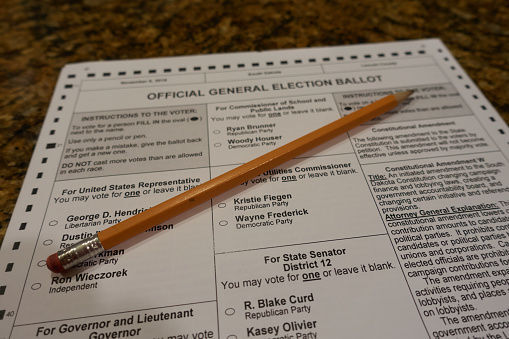PHOENIX — The question of whether Arizonans get to vote on hiking taxes on the most wealthy to help fund education could depend on how petition circulators got paid.
Challengers funded by the Arizona Chamber of Commerce and Industry contend that those gathering signatures to put the initiative on the November ballot were compensated based on how many signatures they collected. That, they argue, violates a state law that specifically forbids paying people on a per-signature basis.
Evidence was presented at a court hearing Tuesday showed that not all circulators were paid the same.
But the question for Maricopa County Superior Court Judge Christopher Coury is whether that runs afoul of the law.
Coury already has ruled that companies that hire circulators are entitled to boost future compensation for workers who have done well. Conversely, he said, they can decrease the salary for those “who have failed to perform their job responsibilities.”
“Nothing about these standard employment decisions offends the law,” the judge wrote. But he said it’s quite something else to pay bonuses or incentives based specifically on the number of signatures collected.
At a three-day trial that began Tuesday, attorneys for the challengers sought to prove that the compensation packages fell into that latter category.
If Coury agrees, he would disallow the counting of signatures gathered by anyone paid according to the legally forbidden plan. And that could leave the Invest in Education initiative — and its proposed tax hike — short of the 237,645 valid signatures needed to put the issue on the ballot.
Challengers are not relying solely on trying to disqualify signatures from being counted.
They also want Coury to rule that the 100-word description of the initiative included on petitions was misleading. And that includes an argument that signers were not informed of the true size of the proposed tax hike.
And if that argument succeeds, then all the petitions would be thrown out.
The initiative seeks to effectively alter the top individual income tax bracket.
Now, any income above $250,000 for individuals and $500,000 for married couples filing jointly pay a tax of 4.54% on all amounts above that. The initiative would add a 3.5% surcharge on top of that, effectively creating an 8% tax rate on incomes above those cut points.
Backers hope to raise $940 million a year for K-12 education.
The fight over the description centers on whether simply mentioning that 3.5% surcharge on incomes adequately informed signers — and could mislead voters — about exactly what’s involved. Challengers contend the measure should instead have said the top tax rate is going to be increased by 77.7%.
“That description is confusing because it needlessly and deceptively uses ‘surcharge’ when the assessment is a tax under Arizona law and misleading because it presents the tax as new rather than a tax increase,” attorney for foes charge in their legal briefs. “The initiative’s sponsors might want to high the proposal’s near doubling of tax rates.”
They also charge that it is misleading to say that certain funds are earmarked for “teachers” even though some of the money would go to those who are support staff.
But Tuesday’s hearing focused on the efforts by challengers to prove that the circulators were being paid in an illegal fashion.
Eric Spencer, one of the attorneys for foes, questioned Colby Jensen, one of the employees of Petition Partners, the firm hired by the Invest in Education Committee to gather signatures. He got Jensen to acknowledge there were various programs that entitled him to earn more than his set $40 an hour.
But Jensen said that involved things like working extra weekend hours. And he said there was a special bonus for circulators who remained through the end of the signature-gathering effort.
Tom Bilsten, who said he managed the Arizona effort for Petition Partners, also detailed various other contests that could entitle circulators additional funds or prizes.
For example, he said, people could get paid more if they wore certain T-shirts. But he denied that it was linked to gathering a specific number of signatures.
“There was no exact cutoff point,” Bilsten said.
“But if you were eligible we’d love to give you a promotion because we understand that this industry, it’s tough to collect signatures,” he testified. “And any opportunity that I have to give you a promotion and incentivize you and get you excited about working with us, we wanted to take that opportunity.”
The trial is expected to run through Thursday. Whoever loses is likely to appeal to the Arizona Supreme Court.





